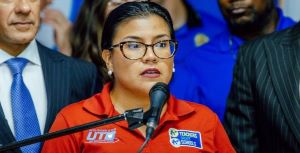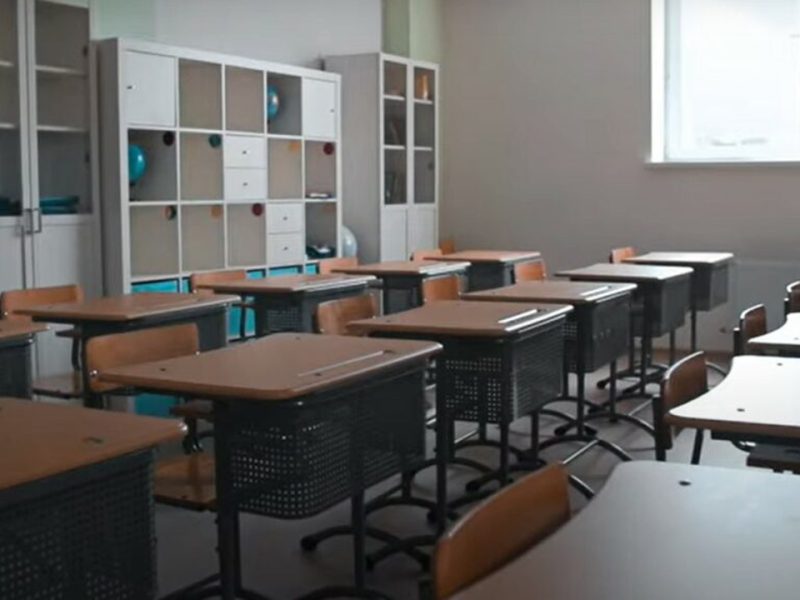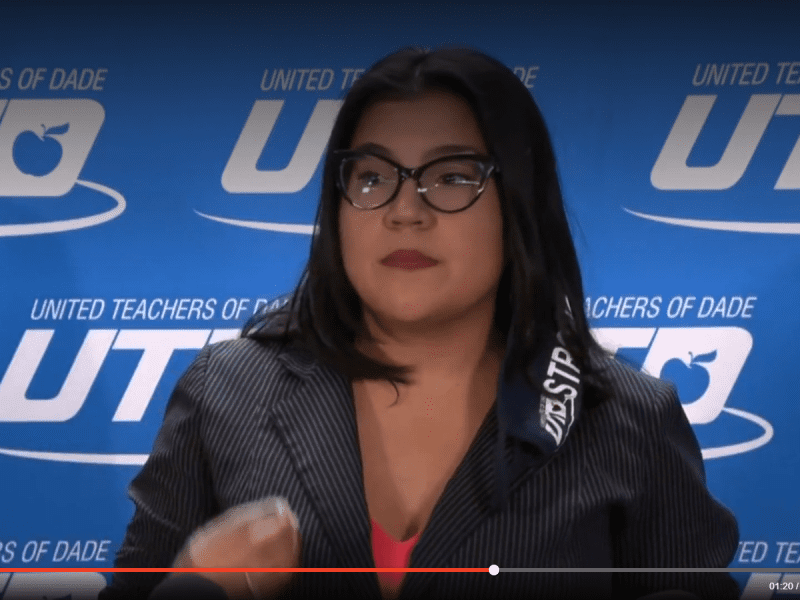Miami-Dade teachers union ratifies new contract. Starting teachers to get big raise
Miami Herald | By Jimena Tavel | June 29, 2020
Despite technological difficulties with electronic voting — and with the 2019-20 school year behind them — Miami-Dade teachers approved Monday a new labor contract that benefits new educators by increasing the minimum salary by $6,500 but shorts mid-career teachers, who will receive almost the same base pay as rookie teachers.
The contract ratification passed by nearly 62%. A little more than half of the approximately 30,000 Miami-Dade County Public Schools teachers and other employees represented by United Teachers of Dade — 15,304 — voted electronically, a process that has been heavily criticized by some of the voters. UTD President Karla Hernandez-Mats said that’s “about the normal turnout rate,” adding that about 15,800 employees voted in 2018 for the last contract’s in-person election.
The contract calls for the starting salary of beginning teachers to rise from $41,000 to $47,500. The base salary of mid-career teachers, who have been working for as long as 16 years, is up to $47,800, $300 more. Late-career teachers, whose last years count the most toward retirement, saw bigger payouts.
Teachers won’t have a retroactive raise this year in their base pay for the 2019-20 school year. Instead, returning teachers will get a 2.5% lump sum stipend in their paycheck this fall that does not count toward retirement. For the 2020-21 school year, teachers will get a supplement ranging from 2% to 4.38%.
UTD hired a third-party election administration company called TrueBallot, which is based in Washington and is widely used across the country. The Broward Teachers Union hired the same company about a month ago for its contract ratification vote, Hernandez-Mats said. TrueBallot confirmed it worked with the Broward Teachers Union.
The teachers union announced the results during a two-minute live streamed video on Facebook at noon Monday. TrueBallot’s President John Seibel clicked on a button to tally the results live: 9,457 yes votes and 5,846 no votes. He said both numbers fail to add up to the total ballots cast, 15,304, because the company sent a blank ballot to test the system.
All of the UTD bargaining unit members, including those who don’t pay member dues, could vote from midnight Wednesday to 5 p.m. Friday. However, after some employees complained that they didn’t get their ballots in time, UTD extended the end of the voting window from 5 p.m. Friday to noon Monday.
Hernandez-Mats said TrueBallot sent the ballots on time Wednesday, but the school district’s server held them back because it’s designed to throttle correspondence and can only send a few thousand emails per hour. It took more than 12 hours for the approximately 30,000 emails to go through for the ballots to hit everyone’s inbox.
“They were backed up,” she said. “It had nothing to do with TrueBallot; TrueBallot did what they were paid to do. Unfortunately, it was the server in the district that slowed them down.”
TECHNICAL ISSUES WITH THE VOTING SYSTEM
Schools employees also noted other issues. In comments on the union’s Facebook page and via messages to Herald reporters, some said they received two ballots, received ballots with other voters’ credentials on them and that the system told them they had already voted even though they hadn’t.
Shawn Beightol, a chemistry teacher at John A. Ferguson Senior High School in southwest Miami-Dade, said he’s been emailing the state Public Employees Relations Commission, asking it to intervene. He plans to challenge the ratification, like he did from 2010 to 2012.
He said he voted, but has been in touch with many employees who weren’t able to cast their ballots. “It’s a botched election,” he said. “At the very best, it’s rookie incompetence, and at the worst it was intent to cause deliberate chaos to manipulate the vote.”
Hernandez-Mats said UTD has “no way of knowing” how many voters were affected by the technological issues and could not provide any explanations.
“We were completely hands-free with the entire process,” she said. “We hired (TrueBallot) so that they could do the election, but we didn’t actually do the election with them.”
She directed the questions to Seibel, TrueBallot’s president.
When reached later Monday, Seibel said he couldn’t comment on specific cases without the details, but that it was “unlikely” some of the errors reported occurred.
“I don’t have enough information on any of those individual people to be able to advise you one way or another as to what did or didn’t occur. I can only tell you what our security is,” he said.
VOTING SECURITY MEASURES
TrueBallot sent each voter an email with a unique pin number and a link to vote. Voters needed that pin number and their own employee ID number (two-factor authentication) to log into the portal and cast their ballot.
After they voted, they received a “thank-you-for-voting” email.
UTD has been working with TrueBallot for about 20 years, but this was the first time the company organized an election of this magnitude electronically for the teachers’ union, Seibel said.
The main challenge TrueBallot faced was roughly 100% of the voter emails UTD provided were employees’ school email addresses, meaning that when TrueBallot sent the emails they would all go through the MDCPS email server, which is hosted on a Microsoft 365 cloud.
Because TrueBallot would be sending about 30,000 different messages to about 30,000 different addresses, the process would take longer than it would if it was one mass email message to all. If not done correctly, the server could overload.
Ahead of the election, TrueBallot met with the school’s district IT staff to make sure the TrueBallot email domain would be cleared so the emails with the ballots wouldn’t bounce back, and to ask about the server’s throttling limitations.
Seibel said MDCPS staff told them the server could process about 3,600 emails per hour. He said TrueBallot sent less than that to avoid any problems; however, the company still experienced issues. He blamed Microsoft.
“I don’t know what goes on in that cloud,” he said. “I don’t think we would know unless Microsoft told us.”
Employees might have gotten ballots with other voters’ credentials if the email listed on the UTD database was incorrect, Seibel said.
After UTD started fielding complaints, TrueBallot sent the ballots again, and again and again. The company sent the ballots to the employees who hadn’t voted yet five times via email and two times via text message. Seibel said that could explain why some voters might have gotten their ballots twice.
Additionally, TrueBallot instructed any voter who experienced issues to reach out to UTD, which addressed each individual concern.
The teachers union resent a ballot to anyone who claimed they hadn’t gotten it because they had access to a database, but they couldn’t check how each member voted, Seibel said.
Miami Herald education reporter Colleen Wright contributed to this report.






